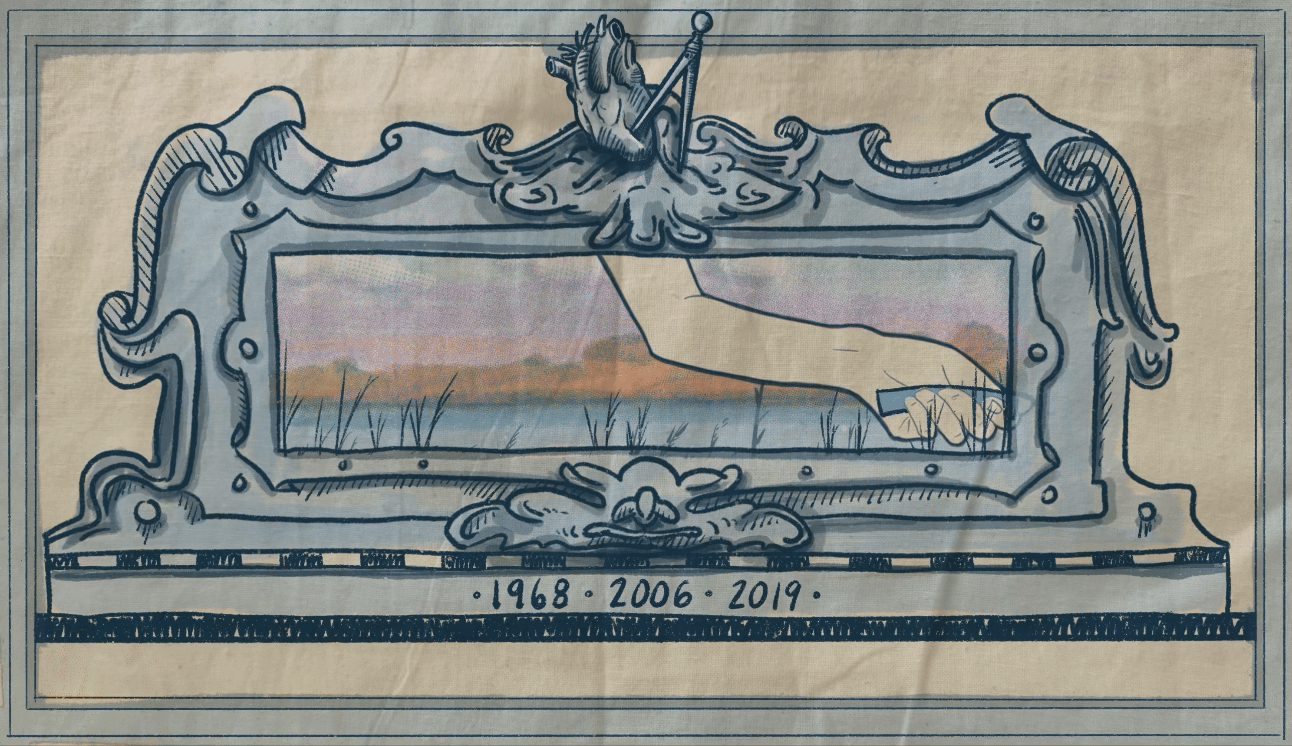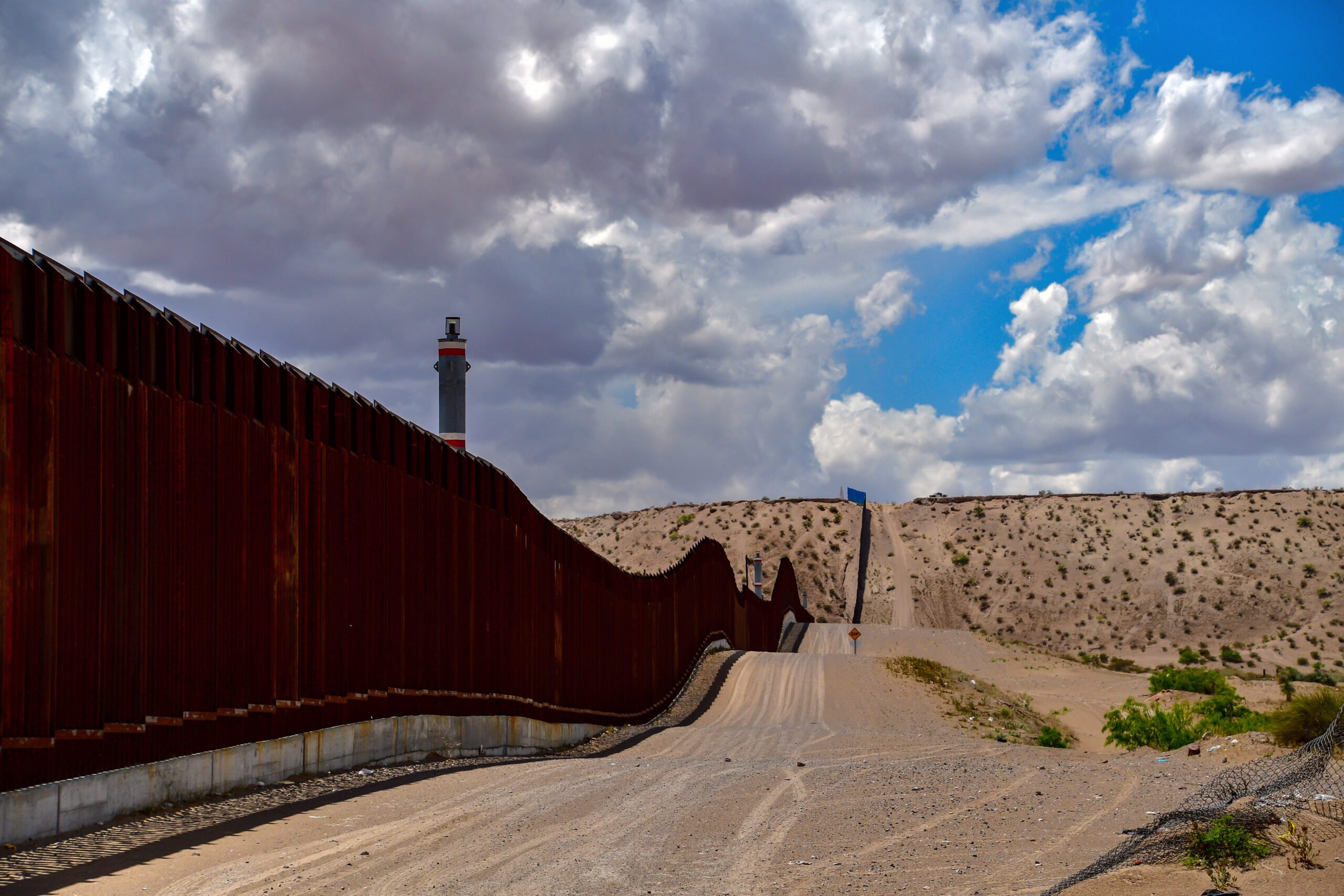Afterword: Reminiscences of Gay El Paso
It was 1991—the year of the jewel-tone suit. Ann Richards was the governor, and I was the 20-something executive director of the Lesbian and Gay Rights Lobby of Texas. I ascended to the job after my boss, Glen Maxey, became the first openly gay man elected to the Texas Legislature. In January 1991, my friends and I marched on the state Capitol three times in 10 days: first for lesbian-gay rights, then to oppose the Gulf War, and finally with Ann Richards in the People’s March on the Capitol. As my friend, the late great AIDS activist Gene Harrington, used to say of the lesbian and gay rights movement back in the 1990s, “We are going to change the world, and if we don’t do it today, then we will tomorrow.”
On the Friday evening that now comes to mind, my endlessly patient partner Jess and I were waiting in front of the El Paso airport on a cold, clear, December evening. Laura MacIntosh, doyenne of the local gay group, had invited me to El Paso to build awareness about the work of the Lesbian and Gay Rights Lobby of Texas. This was an important event since Austin-based LGRL had little presence in El Paso.

Jess and I had never met MacIntosh, and she had not given us a description of herself. So we while we enjoyed the late-afternoon light on the Franklin Mountains, we were also slightly uneasy. Jess and I both believe that if you don’t know what to expect, it is best to dress up to show respect, and we had: panty hose, pumps, skirts, pearls—the works.
Two women in a small blue pickup truck pulled up to airport curb. One was quiet and steady in the driver’s seat. The other waved, pushed open the passenger door, and approached with her arms wide, ready to embrace us. This was Laura MacIntosh our host for the weekend. Though her surname was “MacIntosh”—a name that reminded me of a rainy day in London, Laura was pure El Paso. Her family was Mexican, from Júarez I believe. She was pretty, soft, and plump, with hennaed hair, pink lipstick, and the most intricate manicure I have ever seen. Each crimson nail had a flower painted on top of the polish. Laura’s smile was warm but subtle—like sunshine on a Mardi Gras day.
After embracing us, Laura instructed us to climb into the open back of the pickup (there was no back seat). Pantyhose and all, we obeyed. Soon we were speeding west on Interstate 10. The dark mountains were spangled with street lights that sparkled preternaturally in the crisp air. It was very cold. Jess and I covered ourselves in a scratchy wool blanket that was apparently left in the truck bed for this purpose.
Twenty minutes later, we arrived at a trailer park west of Sunland Park Mall. As we entered Laura’s simple but comfortable home, she introduced us to the driver of the truck (her partner), a closeted, heavyset woman with a sweet smile who worked as a paramedic. Laura’s 11-year-old son Ian greeted us at the door. He had been practicing a stringed instrument, a cello—I believe. He was a smart, funny kid who would say, “Prepare to whine!” before he would complain about something. A tiny, wire-haired dog named Pookie, who also had polish on her nails, danced around my feet.
Laura was a writer. One of the many things that impressed me about her was that, although she had little money, she rented a small office so she would have space for writing. “A room of one’s own with a lock and a key,” she told me, quoting Virginia Woolf.
The next morning she started extensive preparations for the party where she would introduce me to people interested in gay and lesbian politics. She would not let Jess or me help as she made trays of enchiladas and, bowls of salad and squeezed fresh lime juice for margaritas. At sunset, we loaded the food into a borrowed sedan and drove to the restaurant where the event was to take place.
When we arrived, the door was locked. After Laura knocked for several minutes, the owner opened the door a crack and explained that there had been a bomb threat. We could not have our party at her restaurant. We were not certain if there had been an actual bomb or if the bomb was in her head.
Back in 1991, none of us had cell phones, so we could not call around town to find a new location. We drove to Metropolitan Community Church, located in a storefront near I-10. Laura managed to get a key and open the place for the party. Someone posted a sign at the original site with the address for the new location. I had started to make conciliatory comments like, “Well, if no one shows up, then there will be more food for us, right?” I needn’t have worried. A large number of people found their way to the church. Mostly Hispanics, but also some Anglos: a couple of pretty drag queens, hairdressers, AIDS workers, teachers, small-business owners.
Laura gave me a lavender corsage, and I gave a short speech. A TV news crew interviewed us. As the party ended, two burly guys entered the building and approached Laura. At first we were alarmed, but then we realized that they had, apparently, just crossed the border and were hungry. Laura fed them, and they left.
That night, back at the trailer, the telephone rang several times after midnight as people who had seen Laura and me on the news called to express their extreme disdain for gays and lesbians. They threatened Laura. We were frightened, and no one slept much. But we were happy. The party had netted $1,700, which seemed a huge sum considering the context.
Fast-forward to September 2006. Many years ago, I traded in my job as gay rights lobbyist for a steady government job. Like most women in the post 9/11 world, I have exchanged my jewel-tone suits for more somber colors. I don’t travel much anymore and spend most of my time with my family in Austin.
On September 19, on the same day that the front page of the Austin American-Statesman carried a story on Ann Richard’s memorial service, the paper’s metro-state section carried a front-page photo of a handsome young man looking upward: Ian MacIntosh, Laura’s son who was a child practicing the cello the last time I saw him. The article said he had flown to Austin from Los Angeles to hear the sentencing phase of a criminal trial: In 2005, Laura MacIntosh, who had moved to Austin, was murdered by her husband, a female-to-male transsexual. (This person was not the same gentle woman we met in El Paso in 1991). The headline read, “Victim’s son confronts killer.” I subtly pushed the paper in front of Jess so our precocious first-grade son would not read it. Jess’s eyes filled with tears.
Rest in peace Laura MacIntosh. She joins those who have been taken from us before anyone was ready. We are the poorer for having to live in this world without leaders like her. Rest in peace New Texas. Live on youthful exuberance.
Laurie Eiserloh and her partner of 17 years, the endlessly patient Jess Chapin, who appears in this story, are the proud mothers of two children. Ms. Eiserloh is an Assistant City Attorney for the City of Austin.


